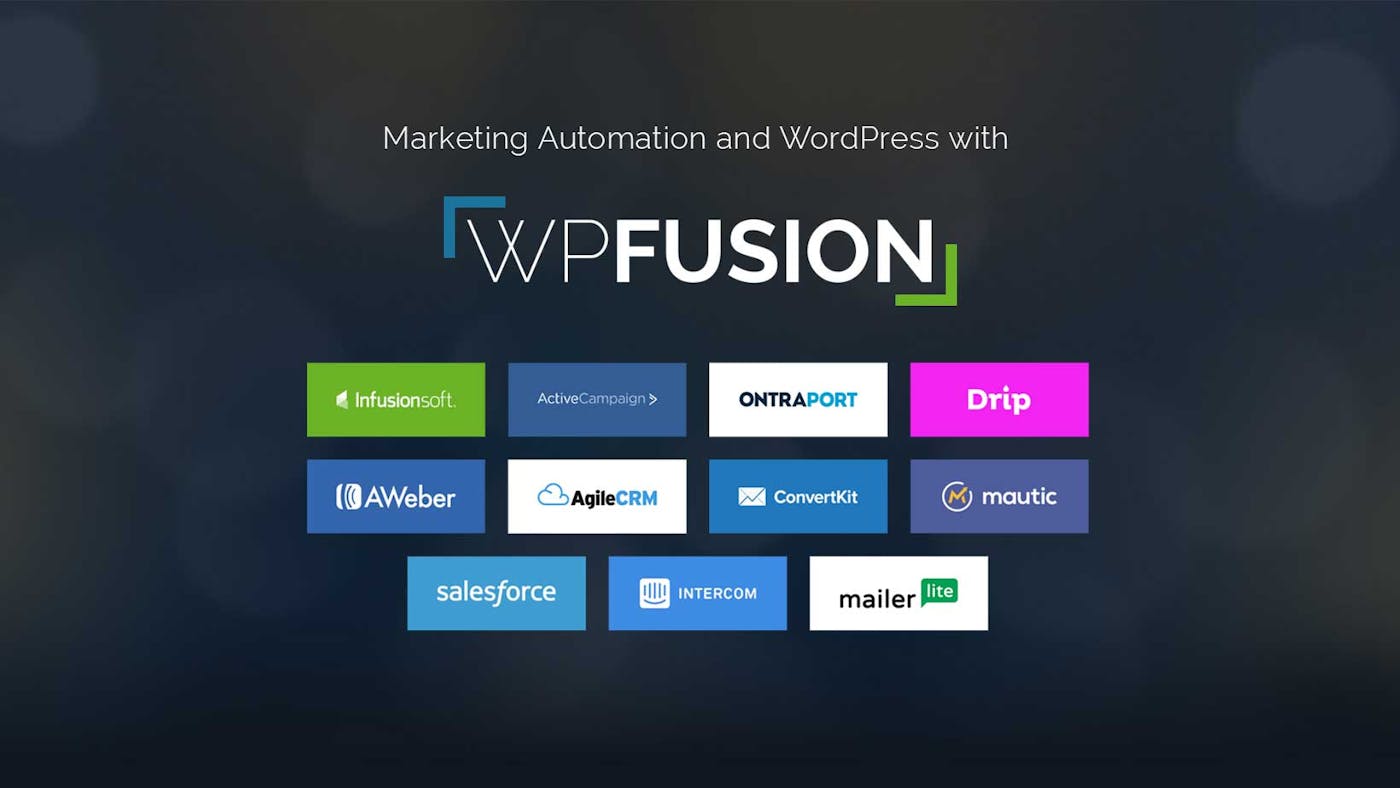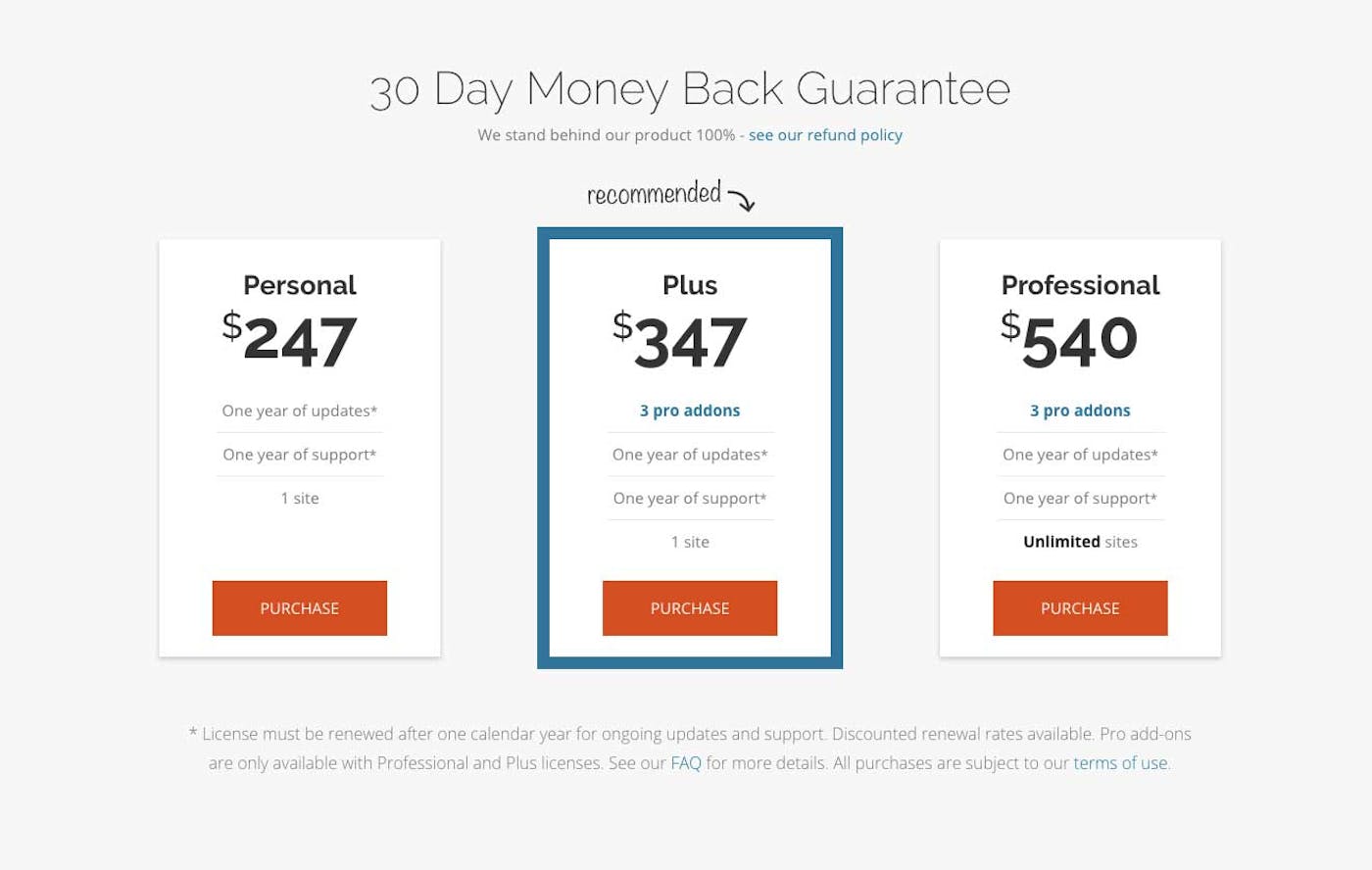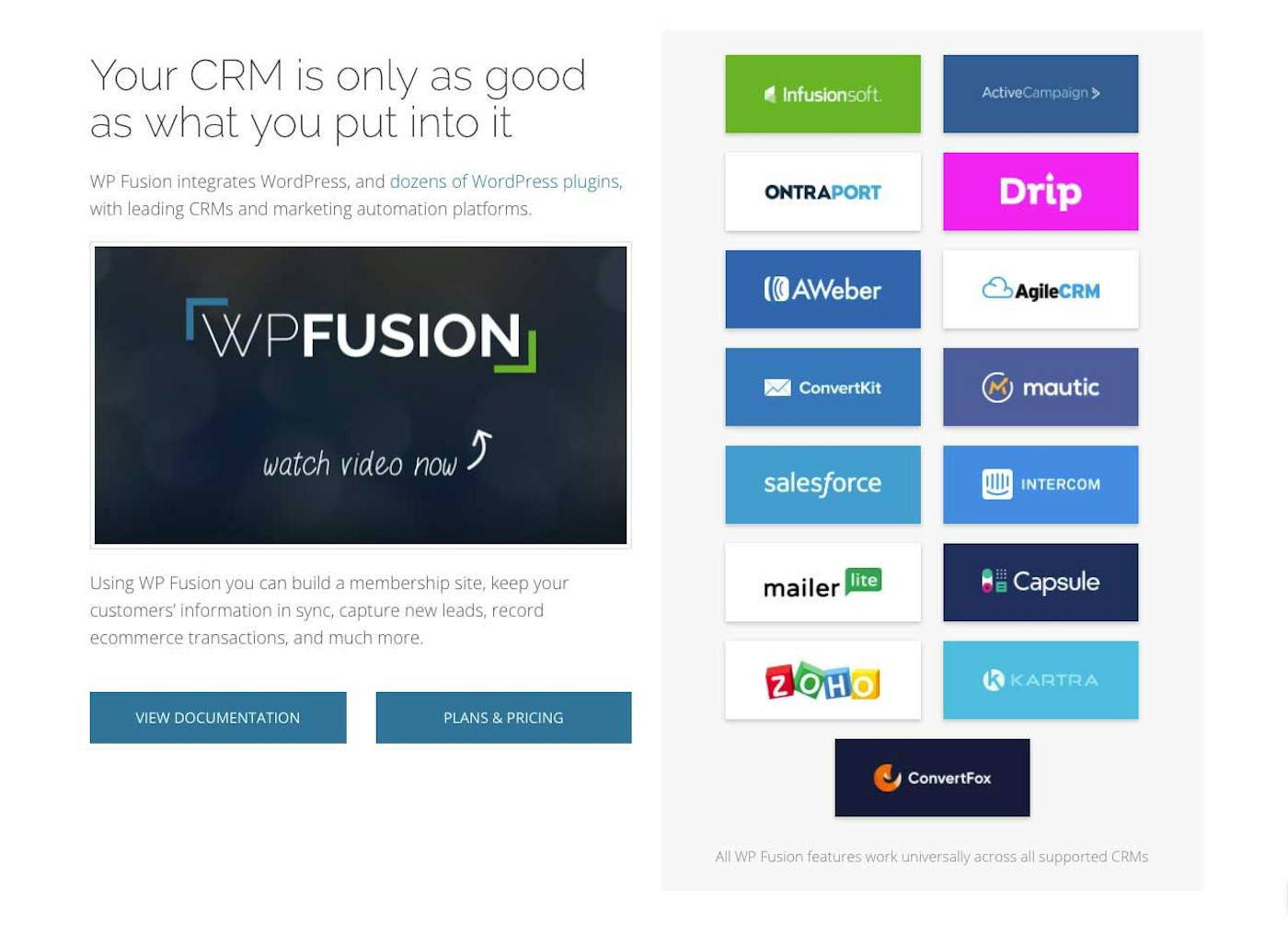Building and Growing a Marketing Automation Tool for
WordPress
Hello! What's your background, and what are you working on?
Hi! My name is Jack Arturo, and I'm the founder of Very Good Plugins. Our main product is WP Fusion, a plugin that integrates marketing automation systems with WordPress.
Marketing automation systems (e.g. ActiveCampaign, Ontraport, and Drip) are essential tools for any business, as they let you keep a database of all of your customers and contacts, segment them, send emails, and generally automate the process of marketing. And WordPress is, of course, the most popular CMS (content management system) in the world, powering around 25% of all websites. But while your customers and members are engaging with your WordPress site, there's no real way to use that data in your marketing. That's the problem WP Fusion is trying to solve.
I first started developing the plugin a little over three years ago, and we're now making about $10,000 a month in recurring revenue.

What motivated you to get started with WP Fusion?
Like many other products, WP Fusion came about because I couldn't find anything else that would do what I needed.
I was working as a freelance developer, specializing in learning management systems (LMS) and membership websites. One of my clients had a membership website that used the UserPro plugin, which creates full-feature front-end user profiles and community sites. He wanted every new user registration to be sent to Infusionsoft, an email marketing and sales platform, as a new contact record. There were some plugins at the time that provided a full membership platform connected to Infusionsoft, but nothing that could do the simple job of creating a new contact when a user registered through unaffiliated software.
I had some experience with the Infusionsoft API so I took on the project, and it worked out well. We bundled up that code into a plugin, and offered it up for sale. Soon enough, people started approaching me who weren't using UserPro, but wanted the same functionality. They would want their WooCommerce customers to go to Infusionsoft, for example.
As it began to grow in scope, I realized there could be the potential there for a really awesome product. We also started getting asked why we only supported Infusionsoft when there are so many other customer relationship management (CRM) and marketing automation platforms out there. So about two years into the project, I re-wrote the whole plugin so it could be entirely modular, and we could easily add new CRMs and new plugin integrations. The goal was to let customers connect "anything to anything".
And that's basically where we are today. It's almost like a crowdsourced project — someone will write in asking if we can make it work with ConvertFox (a CRM), so we do. Or someone will be using a membership platform we haven't previously worked with, so we'll add support for that as well. And it just continues to grow organically.
What went into building the initial product?
I had about eight years experience already as a WordPress developer when I started this, and I knew a little about selling commercial plugins, so I had a bit of a head start and knew sort of what would be required to get it to market. Around the beginning of January 2015, I sketched out a blueprint of what the core functionality would be, as well as what else would be required — like a licensing system, a sales site, support channels, a Facebook presence. Then I sat down to code it.
The initial version took 61 hours to code (I track everything religiously in Toggl), and the sales site took an additional 23 hours to build.
I did all of this working evenings and weekends, and whatever time I could squeeze in around my regular clients. The idea was to get a minimum viable product to market, and then we could improve from there. There were hundreds of features I would have liked to have added at that time, but I also knew if I didn't get something online and available for sale quickly, it could become one of those things you work on forever and nobody ever gets to use.
The first version launched for sale on February 2nd, 2015, so it took just over a month to create the initial product. I was very tired by the end of January.
How have you attracted users and grown WP Fusion?
Despite creating a product for internet marketers, I am the farthest thing from a marketer myself. I mostly just try things and see what works.
We didn't really have a "launch", but I did start to go looking through forums where people were expressing a need for a similar product and leaving links to the site. I also set up a listing on the Infusionsoft App Marketplace, and some people found us there.
Slowly, through organic traffic and word of mouth, things started to pick up. In the first six months we had 33 customers and $4,470 in sales. We had 2,966 website visitors in that period. In the same period a year later (January 2016 to June 2016), we had 76 customers and $20,970 in sales, with 4,024 site visitors. This was all through organic search and growing community awareness, we didn't do any paid advertising or really try to promote it in any organized way.
Here's a look at our traffic over the years:
| Month | Users |
| March 2015 | 164 |
| March 2016 | 557 |
| March 2017 | 1780 |
| March 2018 | 2064 |
Coming into 2017, I realized that our greatest asset in terms of advertising was our community of customers. In a lot of ways, the plugin was really designed around their needs. So I set up an affiliate program, which has brought in some traffic. I also created a Facebook group where people could share tips and strategies. It started out just as a support group for the plugin, but I'm now trying to grow it into a resource for anyone trying to leverage marketing automation with WordPress.
For 2018, we're beginning to put together some proper advertising campaigns by bringing in outside people with marketing expertise in our product arena. I don't like trying to sell someone on something they don't need, but I think a lot of people out there are looking for a solution like WP Fusion, and just don't realize that it exists. Those are the people we'd like to reach as we continue to grow.
My #1 piece of advice is that your customers are your best advocates. And a happy customer is the best form of advertising, hands down.
These days I put about as much time into support as I do into development. I'll set up the plugin for people who are new to WordPress, add new features if a customer needs them, and basically do whatever it takes to make sure that our customers are happy about their purchase.
This has paid off in many ways that are impossible to measure. There are so many software products out there that don't put much emphasis on support, and I see them suffering as a result.
What's your business model, and how have you grown your revenue?
WP Fusion is open source software, so it's actually "free". We charge for support and automatic updates. So when you buy a license for the plugin from our site, you're buying support and automatic updates for one year. After that year, you can renew your license at a 30% discount, or continue using it with the current version you have, but no longer get future updates.
We offer three price points:
- $247 for a single site "Personal" license
- $347 for a single site "Plus" license, which includes some additional addons like abandoned cart tracking and ecommerce tracking
- $540 for a "Professional" license, which can be used on an unlimited number of sites

When we first launched, our prices were about half what they are now. About six months in, we raised them to the current prices to account for added features and the subsequent increase in value to the customer. I didn't notice any decrease in sales with the price increase, and I think the current prices are competitive when you look at other advanced WordPress plugins like WooCommerce Subscriptions or Gravity Forms.
A little over a year ago we switched from sending payment renewal reminders for expiring licenses to putting people on automatic recurring billing by default (using Easy Digital Downloads Recurring Payments). I've noticed an increase in renewal rates since that went into effect, because I think often it's easier to keep the license active just in case you need support. When a manual payment was required for renewal, people would often let it lapse.
While it varies a lot, about 65% of our revenue comes from new sales, and 35% comes from license renewals. We offer both Stripe and PayPal as payment options, with about 25% of our sales coming through PayPal and the rest through Stripe.
Our expenses are pretty minimal. I took on an "intern" last year who was a friend of a friend of mine and knew nothing about programming, but wanted to learn. He's been working for Very Good Plugins for a year now, and is actually turning into a pretty good programmer. So we have some labor costs. Other than that, there are hosting costs, and we have to keep active licenses for a variety of plugins we run on our own site.
| Quarter | Revenue |
| Q1 '15 | 787 |
| Q2 '15 | 3683 |
| Q3 '15 | 6020 |
| Q4 '15 | 8088 |
| Q1 '16 | 8070 |
| Q2 '16 | 12900 |
| Q3 '16 | 8711 |
| Q4 '16 | 12603 |
| Q1 '17 | 16263 |
| Q2 '17 | 23920 |
| Q3 '17 | 26374 |
| Q4 '17 | 24710 |
| Q1 '18 | 29080 |
What are your goals for the future?
I would, of course, like to continue developing the product, as well as including support for more CRM systems to try and reach more customers. More importantly, I'd like our site and Facebook community to grow into a real resource for people using marketing automation tools with WordPress. That will involve shifting away from just writing technical documentation, and writing more about strategies for retaining customers, building membership sites, attracting students, and the like.
I'm currently exploring a few options on how to best do that, as my time is stretched enough already and I'm not an expert in those areas. I'm looking at partnering with a company that can produce articles and video content, and also be available to offer implementation consulting for WP Fusion customers. WP Fusion allows you to do so many things, but choosing the right combination of plugins, themes, hosting, etc for your membership or LMS site involves a lot of variables — and I think we're uniquely positioned to help people navigate that process.
Outside of WP Fusion, I'm also trying to branch out into other projects. We now have a few people working for Very Good Plugins, where we build custom plugins to spec for other companies or developers. I'm also currently working on a new product, Fatal Error Notify, that alerts you when a fatal error occurs on your WordPress site.
The goal is to diversify our revenue streams a bit so I can bring more developers into our ecosystem, and we can all benefit from the combined creativity of having multiple perspectives involved in projects.
What are the biggest challenges you've faced and obstacles you've overcome? If you had to start over, what would you do differently?
There weren't any terrible missteps, but there were a few things that could have been done better.
One that stands out is that I'd known for a while I'd eventually need help with this, so I tried a couple of times to hire a remote developer or agency to handle some development tasks or support tickets. The problem is that I'm very particular about how things are done, and I'm not very good at delegating. I had one developer working for me for three months, and either the code he would write wasn't up to my standards, or I'd have to spend so much time walking him through it that it would have been faster to just do it myself. It's also very expensive to hire a "qualified" developer full time. I burned through all of my savings, and when he still couldn't do even basic tasks, I had to let him go.

When my friend (Stan) approached me about learning programming, I thought it might be a good opportunity to try something different. Since it was essentially an internship, the costs to me were quite low (a stipend, plus lunch everyday). Of course, working with someone who had never seen PHP before was a slow process. But since I was able to train him from the very beginning to use my standards and my methods, there weren't any bad practices to "un-learn".
That obviously won't work in every business, and not everyone is so eager to learn, but it worked out really well in this case. Now I feel comfortable assigning a new feature request to Stan and know that it will get done the way I would do it, and that he's not afraid to ask for help if he runs into any problems. Plus, now he's a fully location-independent PHP developer and is taking on his own clients outside of Very Good Plugins. So it's a mutually beneficial arrangement and creates a really pleasant collaborative environment.
Have you found anything particularly helpful or advantageous?
Pippin Williamson was a huge inspiration to me when I was still working for clients. He has an interview here on Indie Hackers, as well. Reading his blog posts and watching Easy Digital Downloads grow showed me that, if I could just find a problem that wasn't being solved and create a solution for it, it could become a real business. So I sort of had that in the back of my head for a couple of years, waiting for the right opportunity to show up, and then the idea for WP Fusion came along.
I also read The Black Swan by Nassim Nicholas Taleb many years ago, before I was an entrepreneur, and it really shaped the way I looked at business. In short, a "Black Swan" is an event that is completely unexpected and unpredictable, and produces radical changes. As an entrepreneur you want to put yourself in a "Black Swan positive" environment, meaning one in which a random event will benefit you instead of setting you back.
So when I consider a business idea, I always think, "What would happen when that Black Swan comes along?" For example, I could have built this business on a lot of venture capital, but then something unexpected can happen that results in the funding be taken away all at once. I see WP Fusion as "Black Swan positive": we have good months and bad months, but there's no scenario where all of our customers will disappear overnight. On the other hand, some rockstar internet marketer or major blog could find WP Fusion and begin promoting it, and our sales could increase 100x by the next day.
That's given me a philosophy that applies to everything I do — try and minimize potential downsides, and maximize potential upsides. And I think that's helped a lot with shaping my company. We don't have any debt, assets, or liabilities, so we're less vulnerable to negative events and fully ready to take advantage of positive ones.
What's your advice for indie hackers who are just starting out?
It's been said in almost every one of these interviews, but: just do stuff. It doesn't matter what it is, or even if it's a particularly good idea, but stop planning and start building it. If it fails, you'll at least have learned something.
I went through dozens of smaller ventures both inside and outside of the WordPress space. Some worked, most didn't. But each one broadened my skills and, more importantly, made me better at dealing with failures and moving on quickly.
I'll mention Fatal Error Notify again as an example. I have no idea if it will ever be commercially successful. I just had a feeling like it could be. So I put about 50 hours into the development of it, and got it out there. And now at least it has the chance to take off, which is far better than just being an idea in my head.
Where can we go to learn more?
My "portal" on the web is at verygoodplugins.com. If you're interested in leveraging marketing automation with WordPress, definitely check out WP Fusion.
